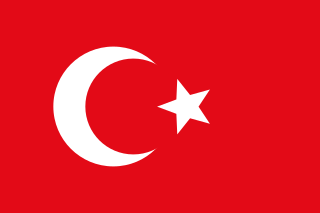Baghdad is the capital of Iraq.
Contents
Baghdad may also refer to:
Baghdad is the capital of Iraq.
Baghdad may also refer to:

Baghdad is the capital of Iraq and the second-largest city in the Arab world after Cairo. It is located on the Tigris river. In 762 AD, Baghdad was chosen as the capital of the Abbasid Caliphate, and became its most notable major development project. Within a short time, the city evolved into a significant cultural, commercial, and intellectual center of the Muslim world. This, in addition to housing several key academic institutions, including the House of Wisdom, as well as a multi-ethnic and multi-religious environment, garnered it a worldwide reputation as the "Center of Learning".
Baghdad is the capital city of Iraq.

Bagdad is a copper mining community and census-designated place (CDP) in Yavapai County, Arizona, United States, in the western part of the state. It is one of only two remaining company towns in Arizona. The population was 1,876 at the 2010 census, up from 1,578 in 2000.

Baghdad Governorate, also known as the Baghdad Province, is the capital governorate of Iraq. It includes the capital Baghdad as well as the surrounding metropolitan area. The governorate is one of two small provinces of all 19 in Iraq into which the country divides entirely, yet by a margin of almost three-to-one, the most populous.

Naseer Shamma is an Iraqi musician and oud player.
Parliament is a title of certain legislatures. Parliament may also refer to:

The Baghdad railway, also known as the Berlin–Baghdad railway, was started in 1903 to connect Berlin with the then Ottoman city of Baghdad, from where the Germans wanted to establish a port on the Persian Gulf, with a 1,600-kilometre (1,000 mi) line through modern-day Turkey, Syria, and Iraq.
The Thief of Bagdad may refer to:

The Vilayet of Baghdad was a first-level administrative division (vilayet) of the Ottoman Empire in modern-day central Iraq. The capital was Baghdad.
The city of Baghdad was established by the Abbasid dynasty as its capital in the 8th century, marking a new era in Islamic history after their defeat of the Umayyad Caliphate. It replaced Seleucia-Ctesiphon, a Sasanian capital 35 km southeast of Baghdad, which was virtually abandoned by the end of the 8th century. Baghdad was the center of the Caliphate during the Islamic Golden Age of the 9th and 10th centuries, growing to be the largest city worldwide by the beginning of the 10th century. It began to decline in the Iranian Intermezzo of the 9th to 11th centuries and was destroyed in the Mongolian invasion in 1258.

The siege of Sadr City was a blockade of the Shi'a district of northeastern Baghdad carried out by US and Iraqi government forces in an attempt to destroy the main power base of the insurgent Mahdi Army in Baghdad. The siege began on 4 April 2004 – later dubbed "Black Sunday" – with an uprising against the Coalition Provisional Authority following the government banning of a newspaper published by Muqtada Al-Sadr's Sadrist Movement. The most intense periods of fighting in Sadr City occurred during the first uprising in April 2004, the second in August the same year, during the sectarian conflict that gripped Baghdad in late 2006, during the Iraq War troop surge of 2007, and during the spring fighting of 2008.

The Boys from Baghdad High, also known as Baghdad High, is a British-American-French television documentary film. It was first shown in the United Kingdom at the 2007 Sheffield Doc/Fest, before airing on BBC Two on 8 January 2008. It also aired in many other countries including France, Australia, the United States, Canada, Germany and the Netherlands. It documents the lives of four Iraqi schoolboys of different religious or ethnic backgrounds over the course of one year in the form of a video diary. The documentary was filmed by the boys themselves, who were given video cameras for the project.
City of Peace may refer to:
The following is a timeline of the history of the city of Baghdad, Iraq.
Douri, Al-Douri or Ad-Douri is an Arabic-based surname, derived from the name of the Iraqi town Ad-Dawr. Douri may refer to:

The Timeline of the War in Iraq covers the War in Iraq, a war which erupted that lasted in Iraq from 2013 to 2017, during the first year of armed conflict.
The following lists events that happened during 2016 in Iraq.
This article lists terrorist incidents in Iraq during 2016:
The Embassy of Sweden in Baghdad is Sweden's diplomatic mission in Iraq. The mission consists of an embassy, a number of Swedes from the Ministry for Foreign Affairs and local staff. Ambassador since 2022 is Jessica Svärdström.
On January 2, 2017, at least three suicide car bombings took place in a Shia Muslim eastern district of Sadr City, as well as behind the Kindi and Imam Ali hospitals, killing 56 people and injuring more than 120 others. Haider al-Abadi, Iraq's prime minister, had informed in a news conference that the suicide bombing, in Sadr City's busy market, was operated by the suicide bomber who detonated a vehicle with explosives. The bomber had pretended to hire day labourers in the market; once labourers gathered near the vehicle, the vehicle was detonated by him. The French President François Hollande was in the city during the attacks.